What is it like to combine your love of the outdoors with earning a living in the outdoor industry? Sarah Stirling catches up with a mountain leader, a product designer, a filmmaker and an event organiser and asks: is your job as good as it looks, and how do you go about getting a job like yours?
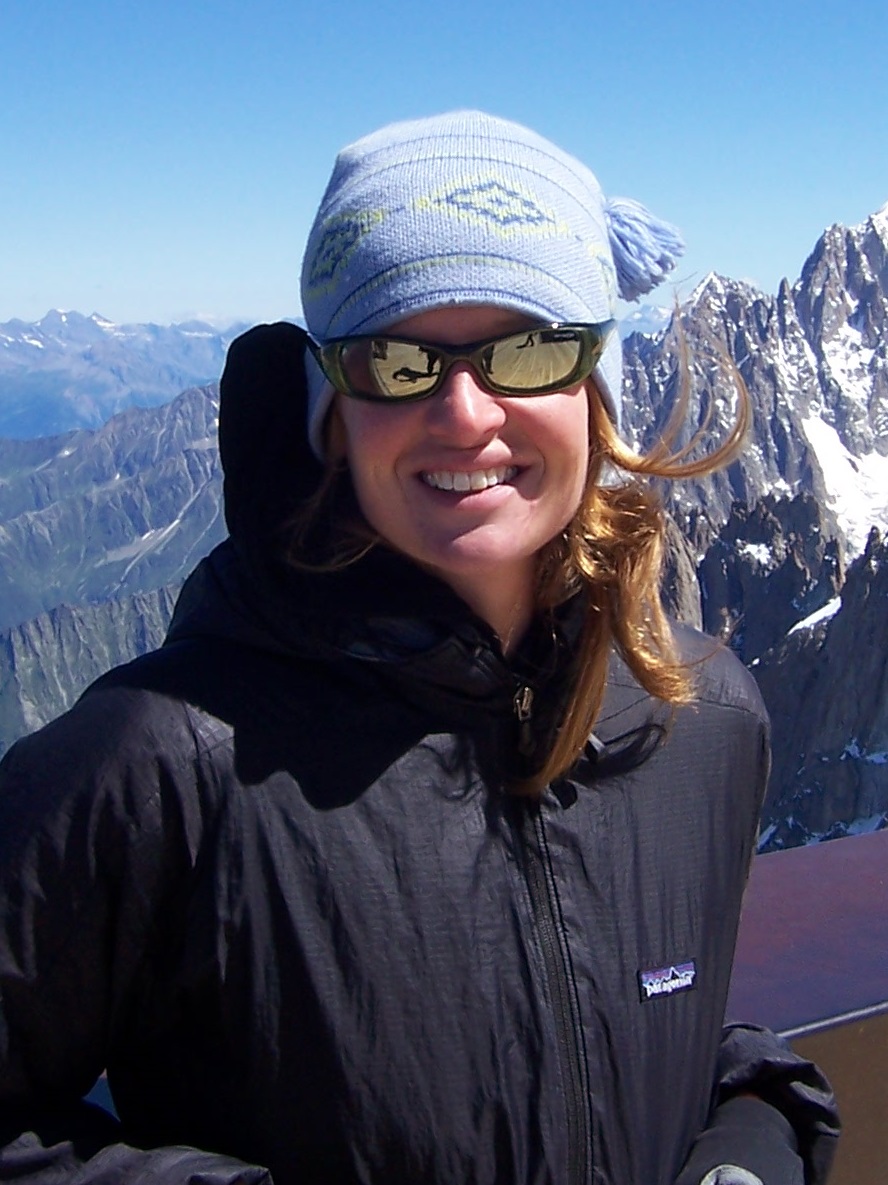
Julia Tregaskis-Allen:
International Mountain Leader
Tell us about your job? I’m the co-director and guide for my own company, Tracks and Trails, and work as an International Mountain Leader and Nordic ski instructor. We offer bespoke guided holidays and scheduled trips, mainly in the Alps and Scandinavia. Trekking, biking, cross country skiing, snowshoeing, Nordic walking and trail running holidays.
Describe your best and worst work day scenarios? Best days: when you are with a group or individual achieving a goal that they never imagined possible. Worst day: it has to be a rainy day and the coffee shop is shut...
What did you have to do to get this job? My job is a mix of all the things that I love and a product of my experience over the past 15 years. An interest in travel and mountains took me to the Alps, Himalaya and beyond. An HND in Art and Event management developed my business mind. In my twenties I worked as a personal trainer in London, set up a triathlon club and managed a gym. I then trained under the Glenmore Lodge Nightwatch scheme - a full time, live-in position to gain outdoor instructor qualifications. After working freelance in the UK for a while, I moved to the Alps to set up the business.
Was it difficult to get into? If you have the right experience and show the right attitude then all the steps I took are not hard to follow. Patience and money is required to tick the qualification boxes. The IML (International Mountain Leader Award), for example, will set you back around three years and several thousand pounds if you have all the right experience. This could be subsidised by joining a trainee instructor scheme like the one at Glenmore Lodge.
Is it something you always wanted to do, or did you fall into it by accident? No, I certainly didn't know this is what I would end up doing!
Is it how you/other people imagine it to be? It’s everything I imagined and a lot more. I am very lucky to live in the Alps, meet new people every day and have views over the mountains from my doorstep. I get paid to travel the world and explore the mountains.
Would you recommend your job to others or warn them off? I would, but I’d warn that it’s hard graft to get the qualifications, then sustain and create a living. And of course you’re working with the public, offering an experience with an expectation and also responsible for their safety. There’s no hiding behind your computer screen if you are having a bad day. I’ve seen many people come into the job then leave. But all the pluses definitely outweigh the bad for me.
Any tips and advice on how to get into it? Find out if you really want to do the job by shadowing an instructor. If considering setting up your own business, get involved in the admin to experience that side, too. If considering running your own business go on a course to help you with ideas/structure on marketing and finance. Then I would highly recommend joining a trainee instructor scheme to gain the quals and experience.
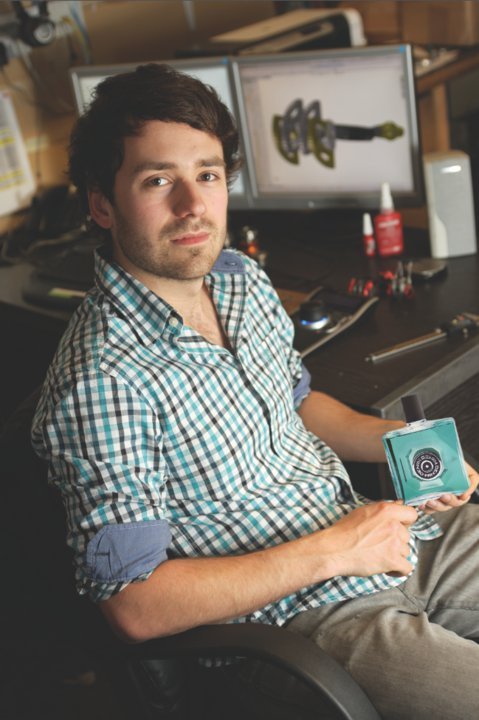
Elliot Tanner:
Design Manager at DMM Climbing
Tell us about your job? I’m design manager for DMM Climbing and DMM Professional. Along with a team of design engineers, tool makers and R&D staff, I turn concepts and ideas into commercially viable recreational climbing gear and equipment for working at height.
Describe your best and worst work day scenarios? Best day: finally signing a product off for production after years of testing. Worst day: finding an unexpected problem with a design or concept and then having to think really hard to find a solution!
What did you have to do to get this job? Was it difficult to get into? I have a Masters Degree in Design Engineering, which was invaluable in getting the job and doing well at it. I actually started in the company as a placement student, and progressed to where I am today.
Is it something you always wanted to do, or did you fall into it by accident? Yes, I wanted to be involved in design and engineering from a young age (too much playing with Lego Technic).
Is it how you/other people imagine it to be? I would say so, it’s a lot of fun although it is not as glamorous as one might expect, I spend a lot of time trying to sort manufacturing issues in a dirty and noisy factory.
Would you recommend your job to others or warn them off? If you want a long term useable set of skills that is transferable to a vast array of industries then I would thoroughly recommend engineering.
Any tips and advice on how to get to where you've got to? A good education in Design and Engineering either through an HND or degree is essential. Other than that a keen interest in climbing or experience of the height safety market is also very useful. Send an email, be persistent and be in the right place at the right time. Keep an eye on the DMM website for upcoming positions.
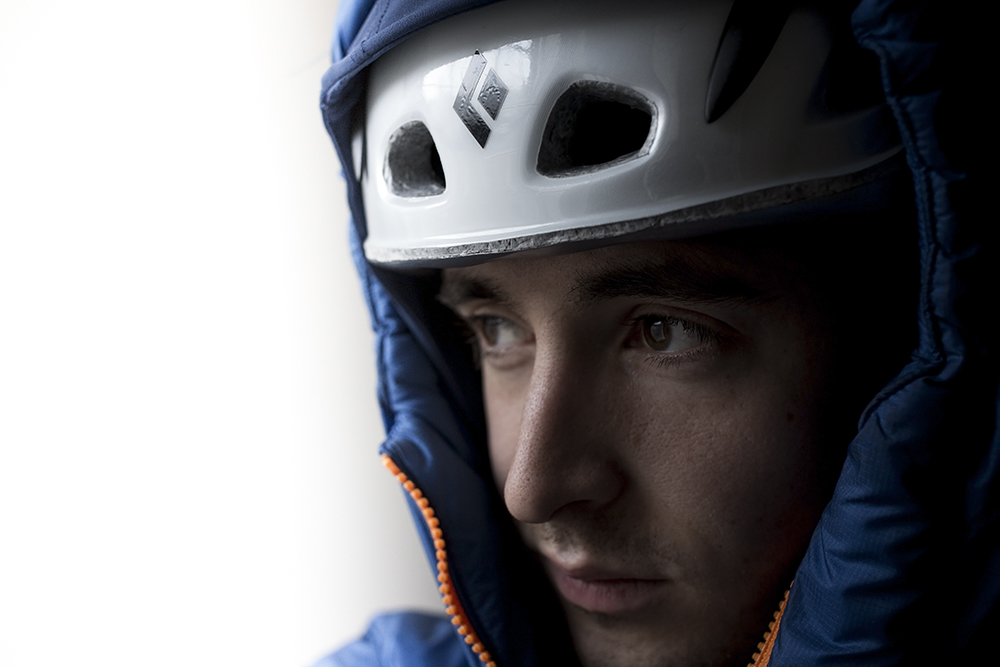
Chris Prescott:
Adventure Filmmaker
Tell us about your job: I'm an adventure filmmaker specialising in climbing and mountaineering documentaries. I work four days a week with Hot Aches, a climbing film company, and run my own business, Minerva Design. Both roles involve a mix of location camera work and post-production editing.
Describe your best and worst work day scenarios: Best day: getting up early, drinking coffee and heading into the mountains with a camera, getting into difficult locations and hanging from a rope while filming. Bad day: admin can be tiring and frustrating at times. I’m terrible at doing my accounts.
What did you do to get this job? Work long hours, sometimes all night, for very little money. A strong portfolio is really important and to get this you have to build experience and contacts. Finding work was a struggle at first - it can be difficult to make initial contacts with clients. The best way to get along is by producing consistently high quality work.
Was it difficult to get into? Yes and no. Practically anyone with a little determination can make an adventure film. All it takes is a camera, some basic editing skills and a strong desire to go out and film. Having said that, it takes a lot of persistence to learn, practice and fully develop an understanding of the technicalities of filmmaking and how best to translate creative ideas into reality. It’s a constant learning process.
Is it something you always wanted to do, or did you fall into it by accident? I always wanted to work in a creative industry and I’ve always been passionate about the outdoors. I’ve travelled around the world to climb, trek, kayak and ski. However it wasn't until a few years ago that I realised I could combine my passion for the outdoors with my love of filmmaking.
Is it how you/other people imagine it to be? The ratio of days spent out in the mountains compared to the time spent in the studio editing is probably not what people imagine. It’s around 80% spent at a computer and 20% in the hills. My income from it is also much lower than people imagine.
Would you recommend your job to others or warn them off? I’d definitely recommend it. It can be very fulfilling, especially when you see a project through to completion. Having said that, it does take a lot of patience and hanging around in freezing temperatures without getting a single good shot. It’s also not a job to do for money, you have to do it for the love of it.
Any tips on how to get into it? Learn your craft. Work out how to use cameras properly, how to compose good interviews and how to film when it’s freezing and your fingers are numb. Film and edit as much as you can. Getting into contact with sponsored climbers and athletes can be the easiest and most effective way to get into contact with gear brands who might commission a film. Expect a lot of rejections at first and no money until you’ve established yourself. Asking for equipment from a brand instead of money can be a good way to set yourself up with all the expensive kit you need for filming. Brands are often more open to offering equipment than cash.
Matt Heason: Outdoor Event Organiser
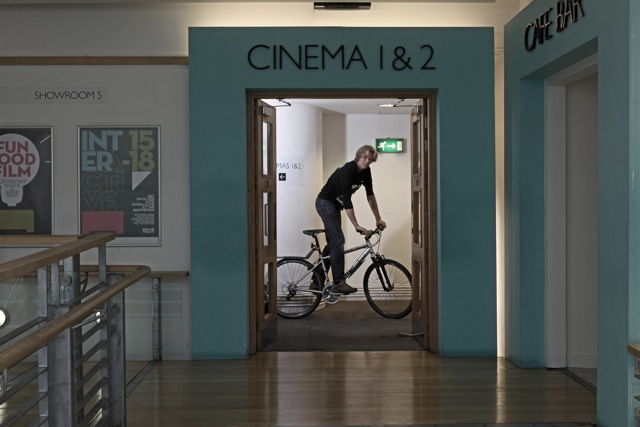
Tell us about your job? I organise Cliffhanger, the Sheffield Adventure Film Festival (ShAFF) and Buxton Adventure Festival (BAF), amongst other events under the banner of Heason Events. It’s all in the preparation. The vast majority of time I’m at a computer or on the phone - the outdoor events themselves are high energy bursts in between the admin. That said, I work for myself so can sneak off to the Plantation for a bouldering session without the crowds when the weather is good.
Describe your best and worst work day scenarios? Best day: go for a run in the morning, head back to an email from a potential sponsor confirming they are supporting a forthcoming event, an hour or two at the email, followed by some film-watching for ShAFF. I watch a lot of films for work. Worst day: back at the desk after time away to find mountains of emails full of bad news. Days like that don’t happen often, but they are pretty soul destroying.
What did you have to do to get this job? Was it difficult to get into? I invented it myself. Back in 2003 there weren’t many people organising slick multimedia shows so I bought a snazzy Sony projector (still works today!), and persuaded some well-known climbers to come on the road with me. We did a 30 day tour of the UK, made some money and learnt a lot of important lessons. The most difficult thing was taking the plunge to go for it as a career. My wife at the time was working so that made it easier.
Is it something you always wanted to do, or did you fall into it by accident? Totally by accident. I’d been programming computers in a horribly open plan office in an ex steel works in Rotherham. Sitting 15m from the nearest tinted window, without a clue how to program - I literally hated my job. I took voluntary redundancy, went travelling with the money and dreamed up the job while abroad.
Is it how you/other people imagine it to be? I’m sure it is. I don’t think anybody thinks it’s all glamour and fun. The best thing about it is the flexibility.
Would you recommend your job to others or warn them off? Working for myself was the best decision I ever made. That said I don’t make a lot of money and never will. I occasionally pine for a 9-5 salaried job with sick pay and Christmas dos, but that usually lasts an hour then I get some perspective back. I’ve recently started working very closely with a friend and that’s made things much better. Previously I never got much feedback other than from the people who come to the events. Now I have a colleague we talk on the phone daily, each working from home.
Any tips and advice on how to get into it? You need good computer skills - I use Microsoft Excel a lot. Get a decent website with a simple CMS (the bit that allows you to change the site remotely). Don’t underestimate social media. Always treat your customers and sponsors well.
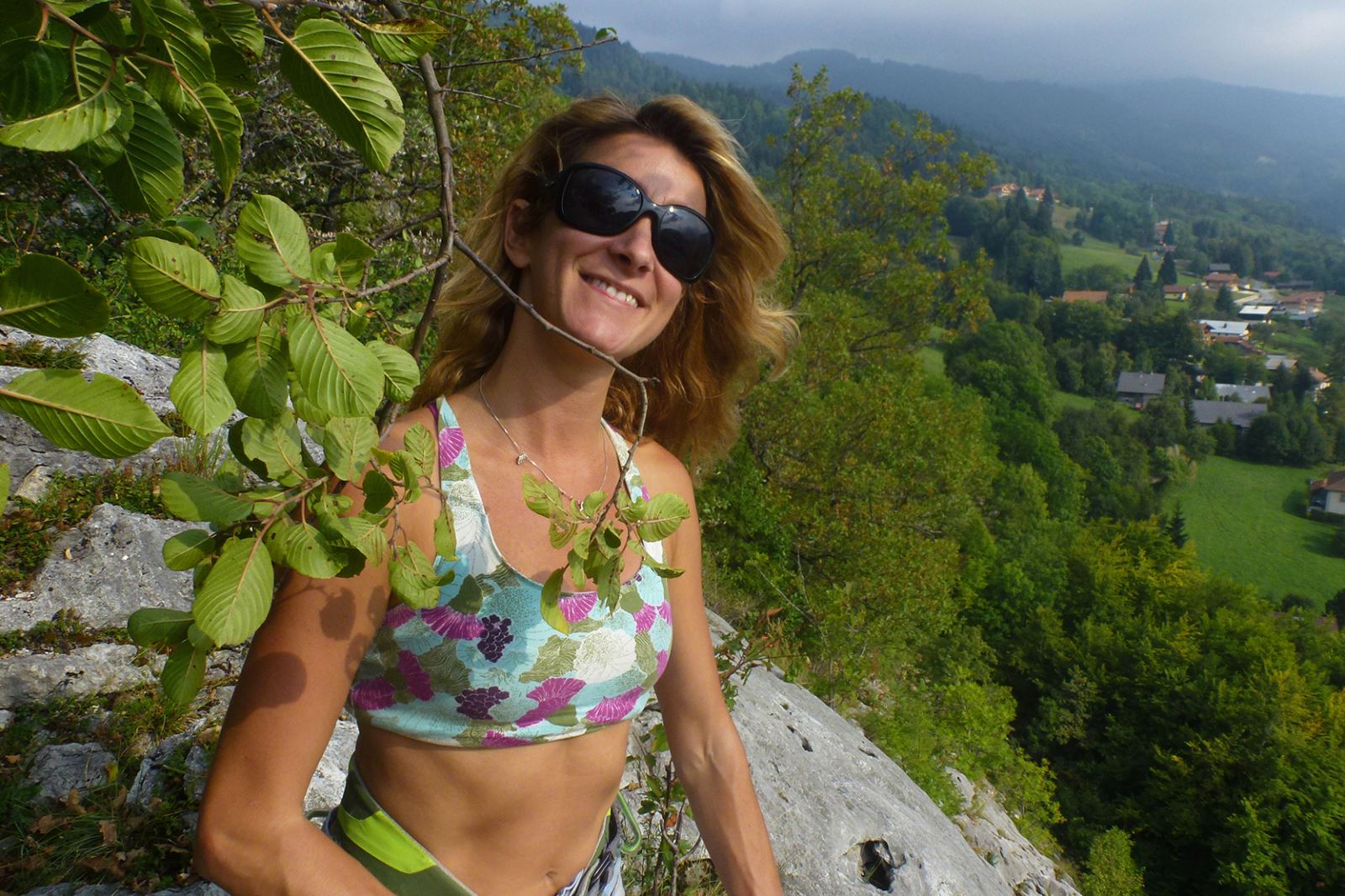 Sarah Stirling: Outdoor Writer
Sarah Stirling: Outdoor Writer
Tell us about your job? I’ve worked from home as a freelance outdoor and travel writer, editor, copywriter and PR consultant since I graduated ten years ago. For three years I was full-time Gear and Features Editor at UKClimbing.com, but apart from that I’ve worked freelance. So far I’ve constantly been Gear Editor, Assistant Editor and/or Outdoors Editor of several magazines and websites at once. This regular part-time work covers my bills. The rest is a balance of PR and copywriting projects, articles, interviews, news items, books and so on.
Describe your best and worst work day scenarios? Best day: a parcel arrives - some innovative new gear to test and a reason to go straight outside. I check my emails and a magazine editor wants me to adventure somewhere exciting and write about it. Then I spend the rest of the day writing. I like in-depth articles that require research, interviewing, planning and proper word-smithing! I get into the flow and the days go by. Bad day: Admin days. I hate doing my accounts. PR can require a lot of admin. Also deadline days, when the weather is glorious.
What did you do to get this job? Was it difficult to get into? I wrote a local history book in my free time at university, then graduated with a first class English degree. These USPs were invaluable. I began writing outdoor articles for a group of local magazines and the role soon grew to Outdoor Editor. At the time I also taught skiing and climbing at outdoor centres. On free days I slaved in national outdoor magazine offices, writing the bits no-one else wanted to, like mammoth gear guide bookazines, and got paid in gear and gear-testing trips abroad. The growing portfolio helped land paid commissions. Gradually I added copywriting, editing, book-writing, PR, web-editing and other skills to my repertoire.
Is it something you always wanted to do, or did you fall into it by accident? Yes, I’ve always loved words and the outdoors, and wrote my first book ‘The Family’s Adventures’ when I was six - it has a wrapping paper cover and a jam jar label! At 16, work experience with an outdoor magazine company revealed you could travel around having adventures and writing about it as an actual proper job. The school careers advisor had not told me about this...
Is it how you/other people imagine it to be? Yes and no. People tend to envisage my life as one long holiday. I spend a lot more time on the computer than out playing. But I enjoy writing, editing and PR work.
Would you recommend your job to others or warn them off? I’ve recommended the job to others before and they’ve struggled to get into it and ended up doing a PGCE instead. So, no. I’d recommend emailing magazine editors and asking if you can do a couple of weeks work experience then decide for yourself. Who knows, the magazine may offer you a job if they like what you produce.
Any tips on how to get into it? Spending quality time in a magazine office gives a good grounding in all the basics, like writing to style, editing, subbing, commissioning, planning, admin. Looking back through testimonials left on my website, producing consistently high standard work, meeting deadlines and being easy to work with are key. Speaking of which, the other essential is a website, which works as an online portfolio and CV.
This article rounds off our BMC Student Season, a term's worth of student-friendly articles and social media banter to help students get the most out of climbing and walking. Please tell us what you think of the BMC by completing our young people survey aimed at 14-25 year olds.
Courses for indoor climbers making their first moves onto rock
(1).jpg)
Who are they for?
These courses are ideal for novice climbing club members, students, parents and individuals who may have had the odd taster of climbing outdoors and wish to gain key safety skills at an excellent price. They may also be a good precursor for people contemplating the Single Pitch Award training. You should already know how to put on a harness and belay. These courses are for people aged 18 or older.
What do the courses cover?
A variety of topics will be covered during the day as well as offering a fun taster to outdoor climbing. Topics may include:
-
Types of trad climbing equipment
-
Placing good protection
-
Building good belays
-
Using guidebooks
-
Seconding/top roping
« Back